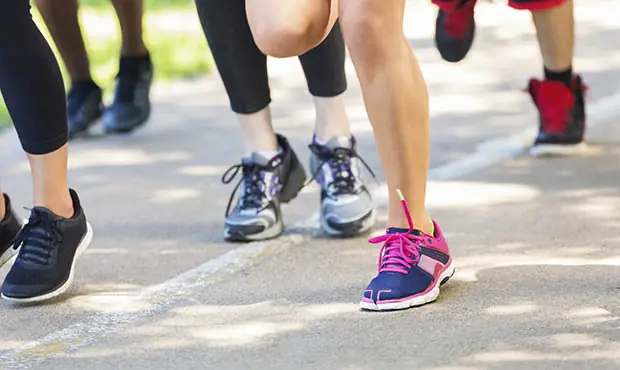
What you put in your body in the weeks and hours leading up to your 10K will have a significant impact on how well you perform.
"Nutrition is really important because that's what fuels you," says Sam Hua, holistic health coach and CEO of Happy Food. "Food goes into our bodies, gets digested in our guts and then it gets absorbed into our blood streams." This then fuels your cells and organs, which is critical for your performance.
With the right nutritional balance, you'll toe the starting line feeling strong and ready. Here's what you need to know to prep for your 10K.
Eat Clean
If you don't eat clean already, it's a good idea to make that your focus in the weeks leading up to the race. "I jokingly say to people, well if you eat crap you're going to feel like crap. When you do a 10K you want to be feeling stellar because it's not a walk in the park," Hua says.
This means focusing on eating whole grains, fruits, vegetables and healthy fats. "We get nutrients and minerals from whole foods and those are turned into energy [to be] used on race day," Hua says. If you load your body with junk, it will be too busy "detoxing and is depleted of the nutrients it needs to thrive." This leads to faster burnout and difficulties completing the race.
If you're not sure where to start, try this clean meal: quinoa with broccoli, olive oil and chicken or brown rice, and black beans with tofu, asparagus and kale are great, clean training meals.
What to Eat The Night Before Your 10K
What you put in your body the night before a race can significantly affect your performance. If you eat something that doesn't agree with you, the results could be bloating and diarrhea. The key is balance and consistency.
Hua says to avoid making any drastic changes to your diet the night before a big race. Focus on what your body is used to for the best results. When it comes to the two go-tos for pre-race fuel (pasta and water), however, focus on moderation.
Don't Eat Too Much Pasta
It's the classic pre-race dinner, right? Unfortunately it can be too much for your body before the race. "The mistake I see is that people end up carbo-loading and then they overeat, which can make them feel sluggish and bloated, and they crash," Hua says.
However, carbs are still beneficial. Carbohydrates increase glycogen, an important resource that our muscles use for energy, so enjoy in moderation. When building your plate, Hua suggests that one half to one third of it be filled with complex carbs, one third should be protein and the rest vegetables. "If your system is used to lots of vegetables, then feel free to eat your usual amounts," she says.



